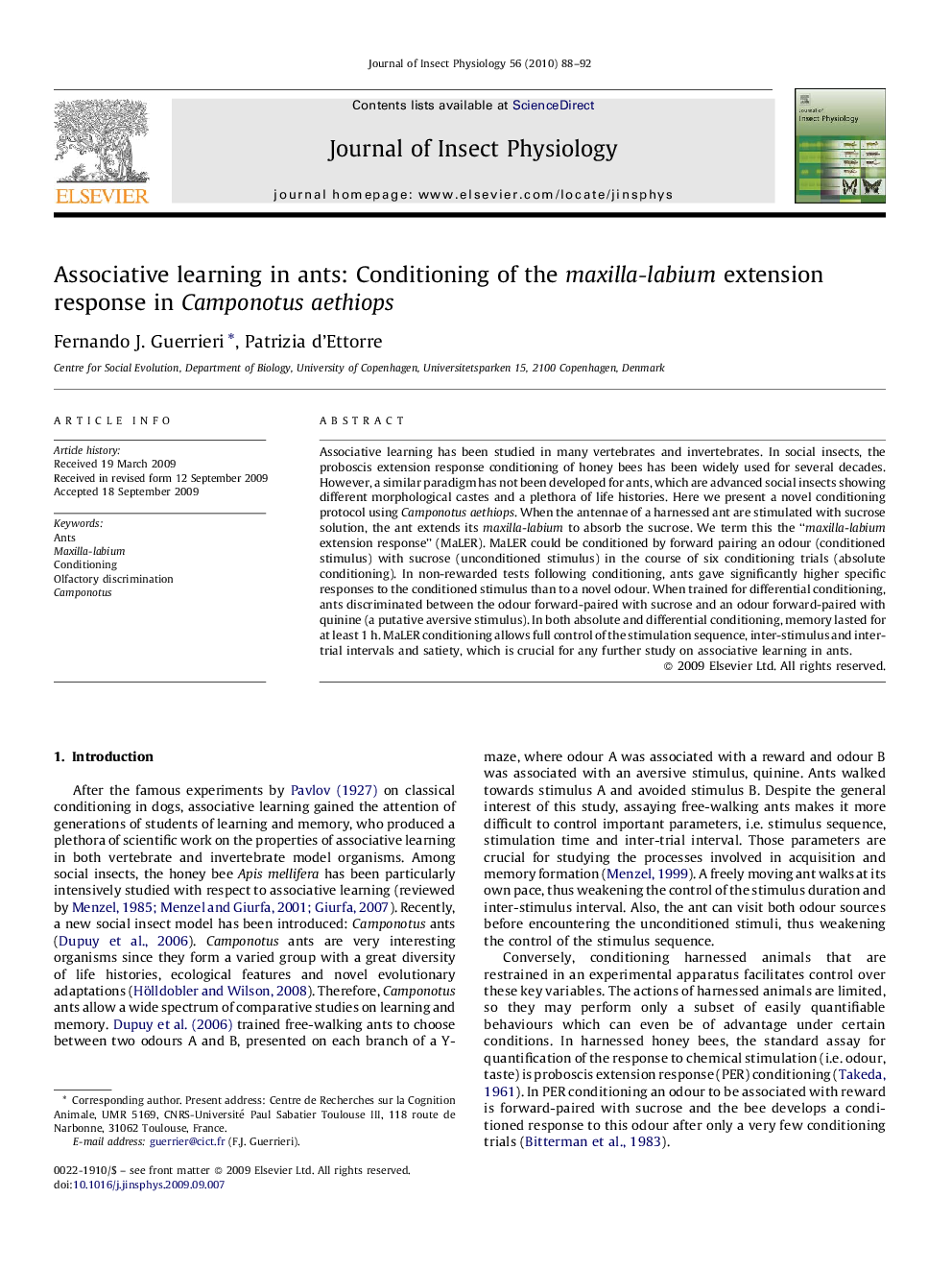| کد مقاله | کد نشریه | سال انتشار | مقاله انگلیسی | نسخه تمام متن |
|---|---|---|---|---|
| 5922354 | 1165371 | 2010 | 5 صفحه PDF | دانلود رایگان |
عنوان انگلیسی مقاله ISI
Associative learning in ants: Conditioning of the maxilla-labium extension response in Camponotus aethiops
دانلود مقاله + سفارش ترجمه
دانلود مقاله ISI انگلیسی
رایگان برای ایرانیان
موضوعات مرتبط
علوم زیستی و بیوفناوری
علوم کشاورزی و بیولوژیک
دانش حشره شناسی
پیش نمایش صفحه اول مقاله

چکیده انگلیسی
Associative learning has been studied in many vertebrates and invertebrates. In social insects, the proboscis extension response conditioning of honey bees has been widely used for several decades. However, a similar paradigm has not been developed for ants, which are advanced social insects showing different morphological castes and a plethora of life histories. Here we present a novel conditioning protocol using Camponotus aethiops. When the antennae of a harnessed ant are stimulated with sucrose solution, the ant extends its maxilla-labium to absorb the sucrose. We term this the “maxilla-labium extension response” (MaLER). MaLER could be conditioned by forward pairing an odour (conditioned stimulus) with sucrose (unconditioned stimulus) in the course of six conditioning trials (absolute conditioning). In non-rewarded tests following conditioning, ants gave significantly higher specific responses to the conditioned stimulus than to a novel odour. When trained for differential conditioning, ants discriminated between the odour forward-paired with sucrose and an odour forward-paired with quinine (a putative aversive stimulus). In both absolute and differential conditioning, memory lasted for at least 1Â h. MaLER conditioning allows full control of the stimulation sequence, inter-stimulus and inter-trial intervals and satiety, which is crucial for any further study on associative learning in ants.
ناشر
Database: Elsevier - ScienceDirect (ساینس دایرکت)
Journal: Journal of Insect Physiology - Volume 56, Issue 1, January 2010, Pages 88-92
Journal: Journal of Insect Physiology - Volume 56, Issue 1, January 2010, Pages 88-92
نویسندگان
Fernando J. Guerrieri, Patrizia d'Ettorre,